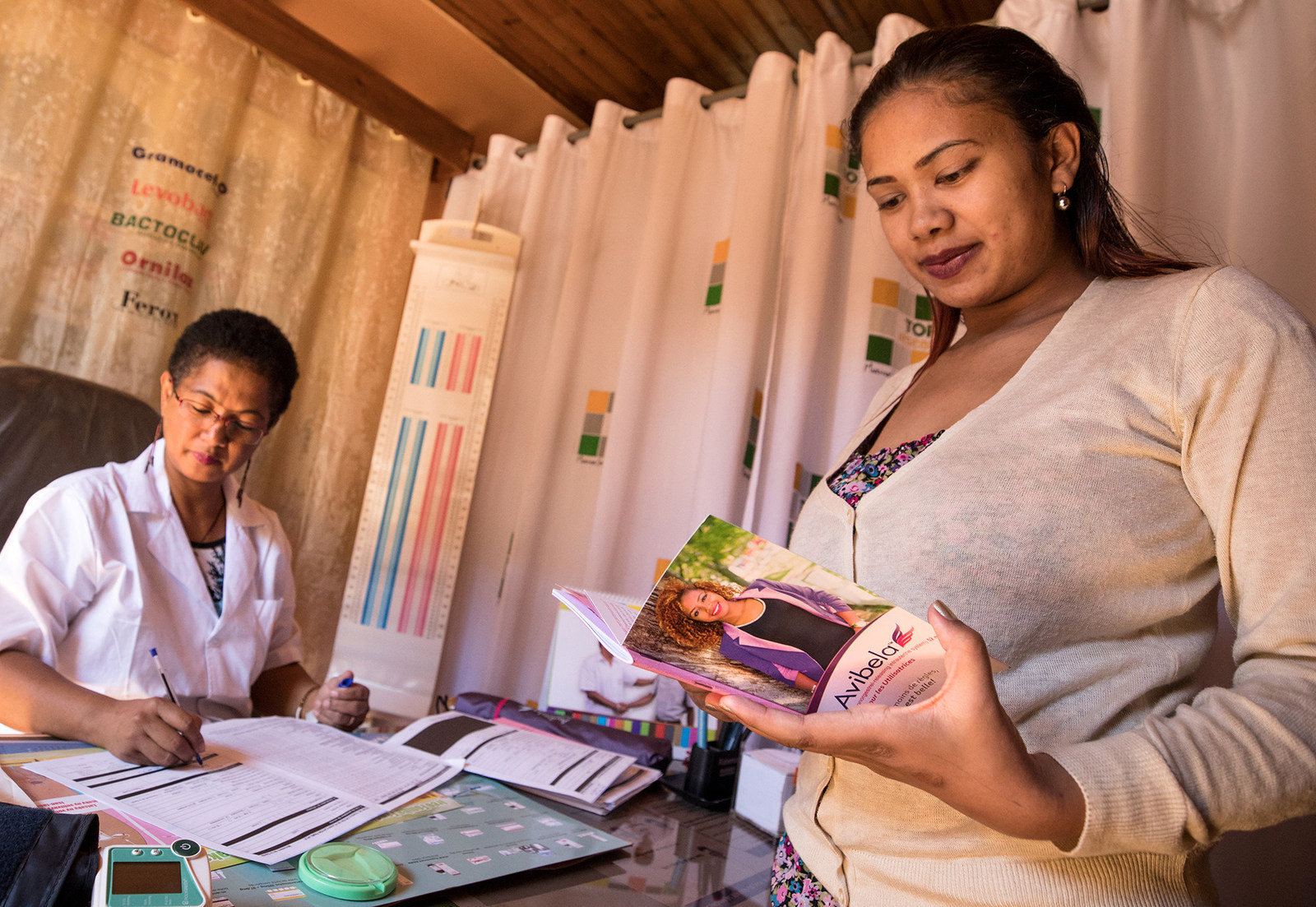Approval Expands Contraceptive Access for Women in Madagascar
SAN FRANCISCO and SAN DIEGO and WASHINGTON – Medicines360, WCG, and Population Services International (PSI) today announced the launch of AVIBELA (levonorgestrel-releasing intrauterine system) 52 mg in Madagascar. This is the first registration and launch of Medicines360’s hormonal intrauterine system (IUS or IUD) in Africa.

AVIBELA’s introduction in Madagascar is supported by WCG’s Expanding Effective Contraceptive Options (EECO) Project, which is funded by the United States Agency for International Development (USAID). The EECO project, led by WCG and implemented in partnership with PSI and others, was designed to support the introduction of contraceptive technologies that better meet the sexual and reproductive health needs of women and girls worldwide. The introduction of AVIBELA will support WCG and PSI efforts to deliver on a joint family planning commitment to expand access to an array of reproductive health products including voluntary long-acting, reversible contraceptives by 2020. PSI will market and distribute AVIBELA and train qualified health care providers to provide it in health clinics across Madagascar.
Medicines360, WCG, and PSI are all dedicated to increasing access to the full range of contraceptive options in Madagascar. About ten women die every day in Madagascar due to complications in pregnancy and childbirth, including unsafe abortions. While the country has seen gains in recent years, use of clinically proven family planning methods remains low, at an estimated 40 percent for married women of reproductive age (15 to 49). The introduction of AVIBELA supports the government’s goal of boosting Madagascar’s rate of contraceptive use to 50 percent.
“The majority of women with whom we speak want a product that addresses multiple issues, including heavy menstrual bleeding, spacing pregnancies, and the desire for more control over their health,” said Francia Rasoanirina, EECO Project Manager at PSI Madagascar. “AVIBELA is an attractive option because it combines pregnancy prevention with other lifestyle and health benefits that so many women want.”
“When additional long-acting reversible contraceptive options are made readily available, the use of all forms of contraception increases. Further, our business model ensures that women who choose Medicines360 products in the U.S. help other women around the world access medicines that help them live their best and fullest lives,” said Jessica Grossman, MD, Chief Executive Officer of Medicines360. “Through our partnership with WCG and Population Services International, women in Madagascar will gain increased access to our affordable and effective contraception option. We are committed to closing gaps in women’s health, and AVIBELA will help us reach a population of women facing significant barriers in accessing family planning support.”
“More than 30 million women in Sub-Saharan Africa cite method-related reasons for not using contraceptives,” said Shannon Bledsoe, Executive Director of WCG, which registered the product in Madagascar. “Through the introduction of AVIBELA, we provide the women of Madagascar with a highly-effective contraceptive option and one more choice in the basket of family planning products available to them.”
Important Safety Information
Who is not appropriate for AVIBELA
Use of AVIBELA is contraindicated in women with: known or suspected pregnancy and cannot be used for post-coital contraception; congenital or acquired uterine anomaly, including fibroids if they distort the uterine cavity; known or suspected breast cancer or other progestin-sensitive cancer, now or in the past; known or suspected uterine or cervical neoplasia; acute liver disease or liver tumors; untreated acute cervicitis or vaginitis, including lower genital tract infections (eg, bacterial vaginosis) until infection is controlled; postpartum endometritis or infected abortion in the past 3 months; unexplained uterine bleeding; current IUS; acute pelvic inflammatory disease (PID) or history of PID (except with later intrauterine pregnancy); conditions increasing susceptibility to pelvic infection; or hypersensitivity to any component of AVIBELA.
Clinical considerations for use of AVIBELA
Use AVIBELA with caution after careful assessment in patients with coagulopathy or taking anticoagulants; migraine, focal migraine with asymmetrical visual loss, or other symptoms indicating transient cerebral ischemia; exceptionally severe headache; marked increase of blood pressure; or severe arterial disease such as stroke or myocardial infarction.
Insertion of AVIBELA is contraindicated in the presence of known or suspected PID or endometritis or a history of PID unless there has been a subsequent intrauterine pregnancy. IUSs have been associated with an increased risk of PID, most likely due to organisms being introduced into the uterus during insertion. About 1/3 of women diagnosed with PID developed the infection within a week of AVIBELA insertion, while the remainder were diagnosed more than six months after insertion. PID is often associated with sexually transmitted infections (STIs); AVIBELA does not protect against STIs, including HIV. PID or endometritis may be asymptomatic but still result in tubal damage and its sequelae. PID can cause tubal damage leading to ectopic pregnancy or infertility, or infrequently can necessitate hysterectomy, or cause death.
Pregnancy related risks with AVIBELA
If pregnancy should occur with AVIBELA in place, remove the intrauterine system because leaving it in place may increase the risk of spontaneous abortion and preterm labor. Removal or manipulation may result in pregnancy loss. The likelihood of a pregnancy being ectopic is increased with AVIBELA. Risks associated with ectopic pregnancy include loss of fertility. Women with a history of ectopic pregnancy, tubal surgery, or pelvic infection carry a higher risk of ectopic pregnancy.
Be aware of other serious complications and most common adverse reactions
Some serious complications with IUSs like AVIBELA are sepsis, perforation, and expulsion. Severe infection or sepsis, including Group A streptococcal sepsis (GAS), have been reported following insertion of other LNG-releasing IUSs. Aseptic technique during insertion of AVIBELA is essential in order to minimize serious infections such as GAS.
Perforation (total or partial, including penetration/embedment of AVIBELA in the uterine wall or cervix) may occur, most often during insertion, although the perforation may not be detected until sometime later. Delayed detection or removal of AVIBELA in case of perforation may result in migration outside the uterine cavity, adhesions, peritonitis, intestinal perforations, intestinal obstruction, abscesses, and erosion of adjacent viscera.
Partial or complete expulsion of AVIBELA may occur, resulting in the loss of contraceptive protection.
Ovarian cysts may occur and are generally asymptomatic, but may be accompanied by pelvic pain or dyspareunia. Evaluate persistent ovarian cysts.
In the clinical trial of AVIBELA the most common adverse reactions (≥5% users) were vaginal infections (13.6%), vulvovaginal infections (13.3%), acne (12.3%), headache or migraine (9.8%), nausea or vomiting (7.9%), dyspareunia (7.0%), abdominal pain or discomfort (6.8%), breast tenderness or pain (6.7%), pelvic discomfort or pain (6.1%), depression or depressed mood (5.4%), and mood changes (5.2%).
About Medicines360
Medicines360, located in San Francisco, California, is a nonprofit global women’s health pharmaceutical company with a mission to expand access to quality medicines for all women regardless of their socioeconomic status, insurance coverage or geographic location. Medicines360 is committed to working with healthcare providers, advocacy groups and patients to deliver innovative and meaningful treatments that help women around the world have greater access to the medicines they need. For more information, visit www.medicines360.org.
About WCG
WCG is an international nonprofit committed to empowering, educating and enabling women and girls to make informed choices and access critical reproductive health products and services. WCG’s credentials in product introduction have made it a preferred partner of organizations looking to move products from laboratories and manufacturing plants to the women who need them. WCG excels at forming strategic partnerships to introduce and create access to new contraceptive methods around the world. The Quality and Regulatory Departments at WCG are experienced in the global registration of drugs and devices, and in aiding manufacturers to improve their processes to meet international best practices.For more information, visit http://www.wcgcares.org/
About Population Services International
Population Services International (PSI) is a leading global health organization working in reproductive health, HIV, malaria, child survival, non-communicable diseases and sanitation. Partnering with the public sector and harnessing the power of markets, PSI helps people in the developing world lead healthier lives and plan the families they desire. PSI manages social franchises that provide affordable health care products and services, as well as empowering communities and families through health education. PSI runs programs in 50 countries across the world and operates franchise networks in 30 countries in Asia, Africa and Latin America. For more information, visit www.psi.org.
AVIBELA is a registered trademark of Medicines360 in Benin, Burkina Faso, Cameroon, Central African Republic, Chad, Comoros, Cote D’Ivoire, Democratic Republic of Congo, Equatorial Guinea, Gabon, Guinea, Guinea Bissau, India, Kenya, Madagascar, Mali, Mauritania, Morocco, Niger, Senegal, Togo, and Zambia.

